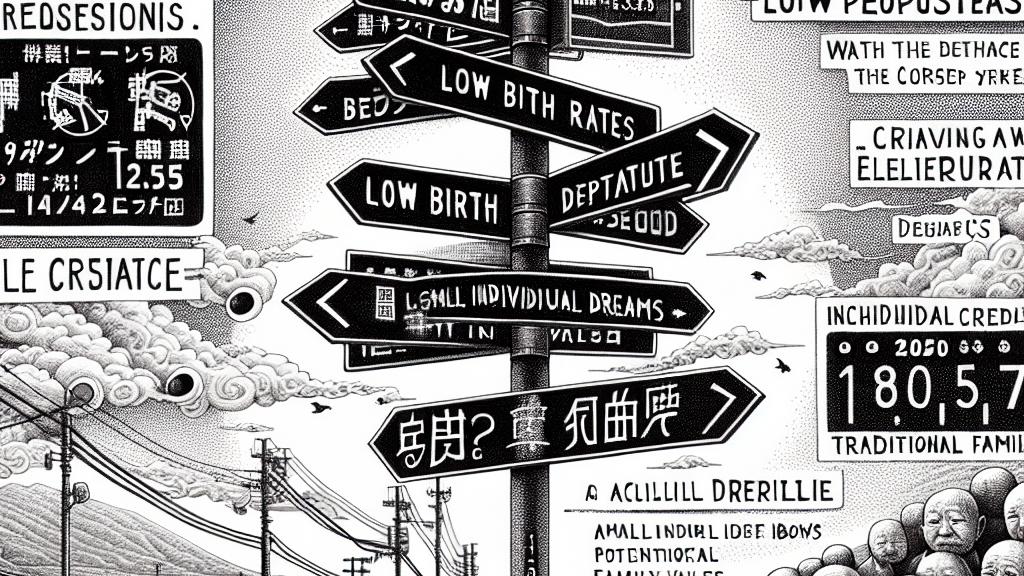The Shrinking Future: Japan's Baby Crisis Unveiled!
Overview
- Japan faces a significant demographic crisis marked by a declining birth rate.
- Analysis of the causes reveals urgent societal impacts and potential long-term consequences.
- Collaboration across governmental, private, and community sectors is critical for addressing this urgent challenge.

Understanding the Demographic Crisis
Japan is at a critical crossroads, grappling with a profound demographic crisis characterized by persistently low birth rates, currently hovering at approximately 1.34 children per woman. This figure is significantly below the replacement threshold of 2.1, which is essential for maintaining population stability. The implications of this demographic downturn extend beyond mere numbers; they threaten the viability of economic growth, strain pension systems, and challenge the very fabric of society as the population ages. With a projected one in three individuals expected to be over 65 by 2050, Japan faces the dual challenge of supporting a growing elderly population while simultaneously needing a robust workforce to sustain its economy. The cultural shift away from family-centric values toward prioritizing individual aspirations signifies a deeper societal transformation that necessitates immediate and strategic interventions.
Root Causes of Declining Birth Rates
Several intertwined factors contribute to the reduction in Japan's birth rates. Firstly, there has been a significant change in societal attitudes towards marriage and childbearing, with increasing numbers of young adults viewing these as lifestyle choices rather than social expectations. Economic instability plays a critical role as well; many young people struggle with financial insecurity due to stagnant wages and the high cost of living, which can exceed 1400 to 2000 million yen per child over a lifetime. Additionally, the lack of accessible childcare and educational resources places an additional burden on would-be parents, making the prospect of raising children daunting. These challenges culminate in a reluctance among couples to pursue family life, indicating an urgent need for comprehensive family support policies and infrastructure improvements to foster a more conducive environment for raising children.
Strategic Responses for a Sustainable Future
To effectively combat the baby crisis, Japan must adopt a strategic, multi-faceted approach involving government initiatives, corporate participation, and community engagement. Policymakers should enhance financial supports such as subsidized childcare, parental leave incentives, and housing assistance specifically targeting young families. Encouraging businesses to implement flexible work arrangements will help improve work-life balance for young parents. Furthermore, expanding affordable access to quality healthcare and education can alleviate many of the pressures associated with child-rearing. The conversation around immigration also requires a shift; Japan must consider incorporating younger immigrants as a potential solution to offset labor shortages. By fostering a societal framework that values and supports family growth, Japan can pave the way for a rejuvenated demographic landscape that secures its economic and social future.

Loading...